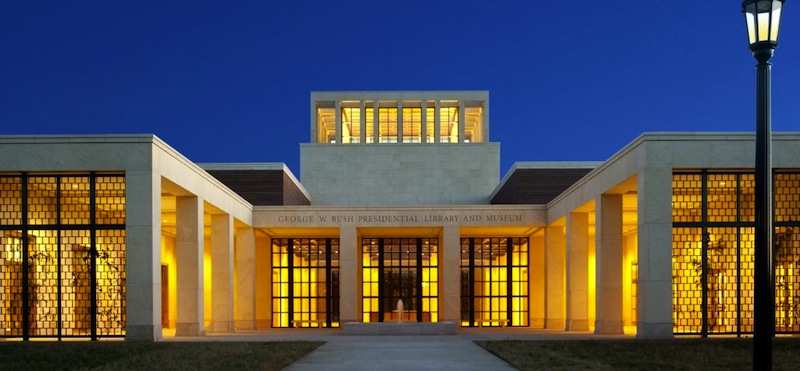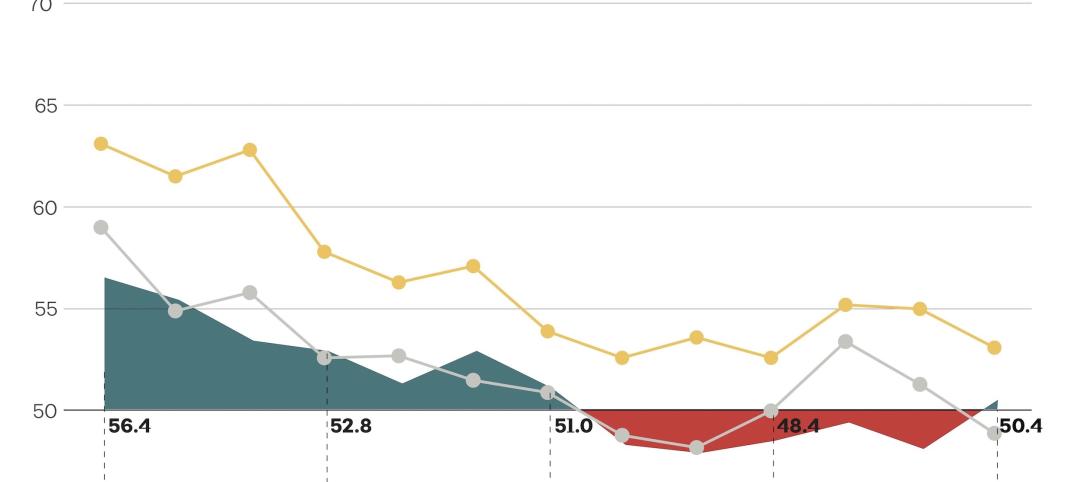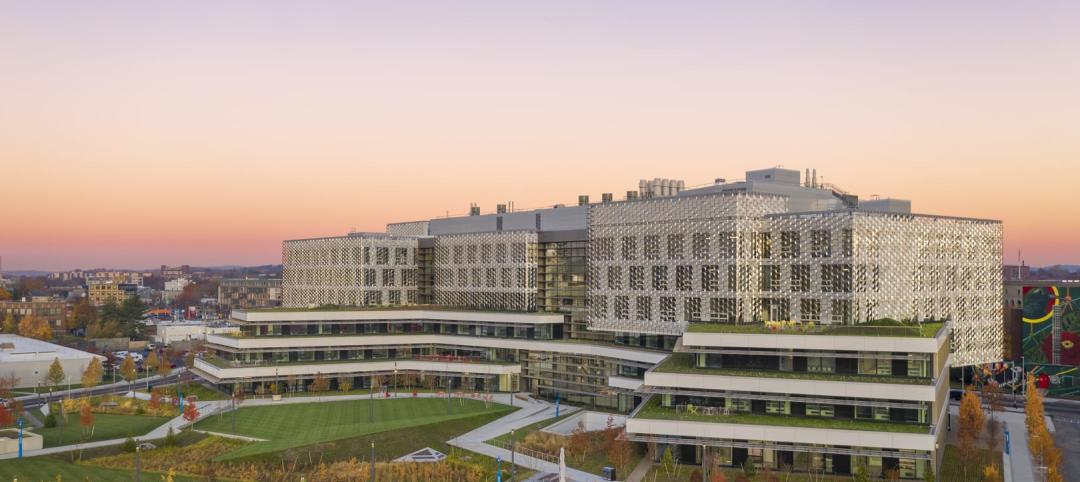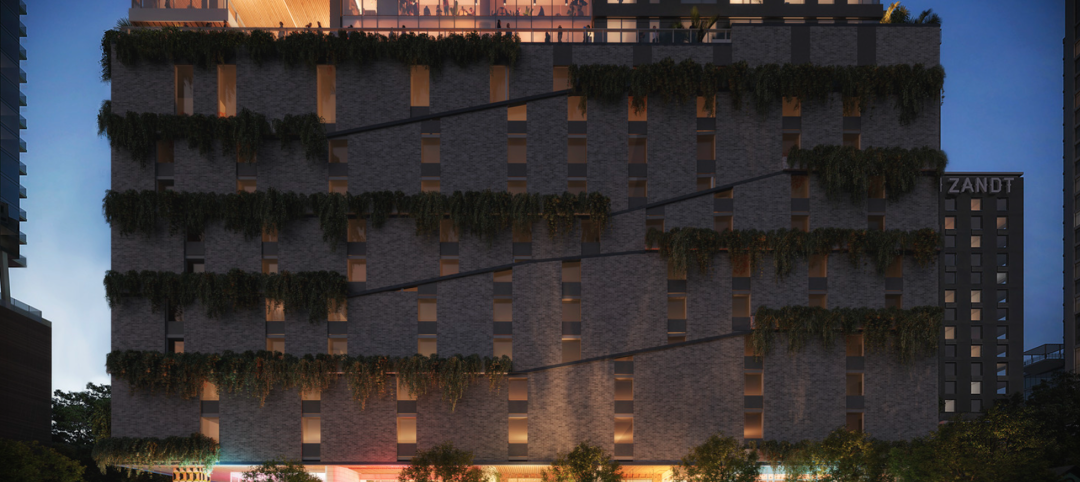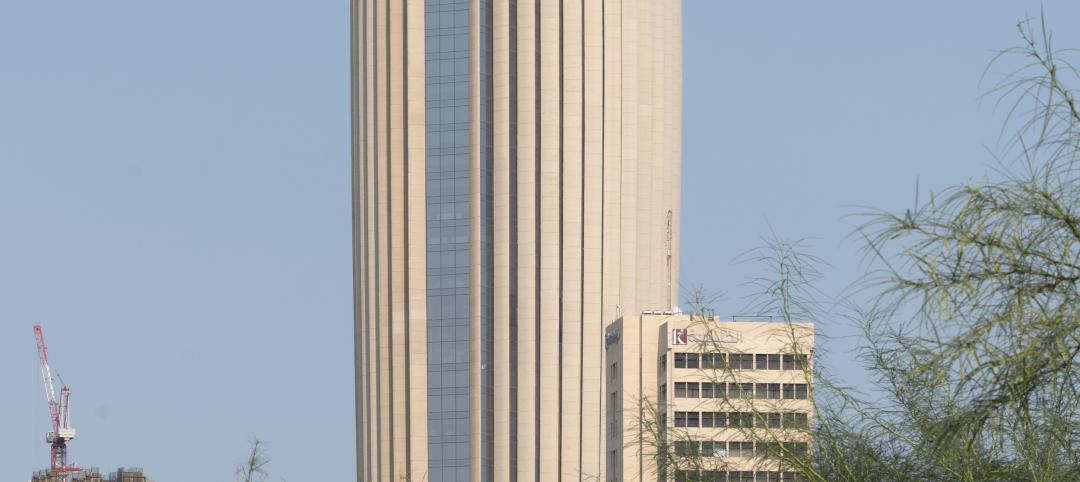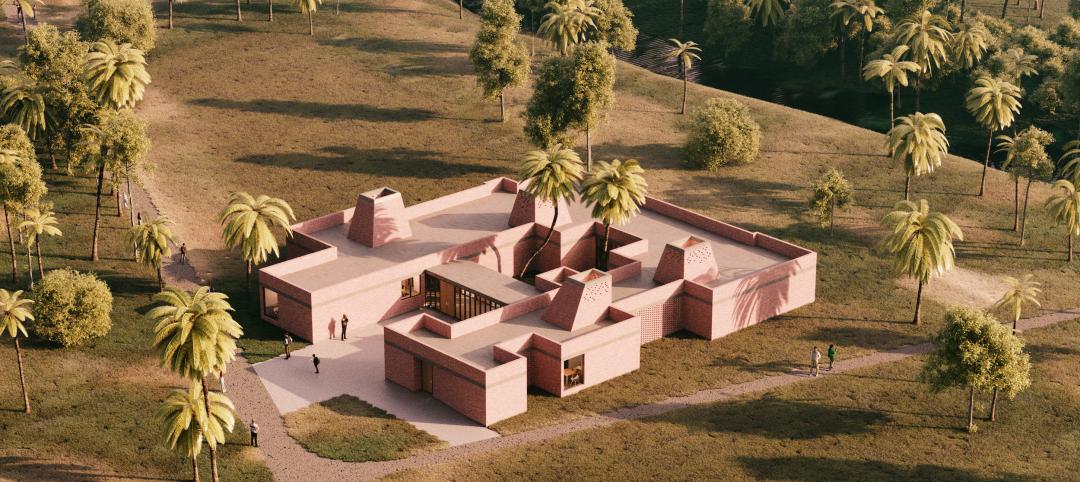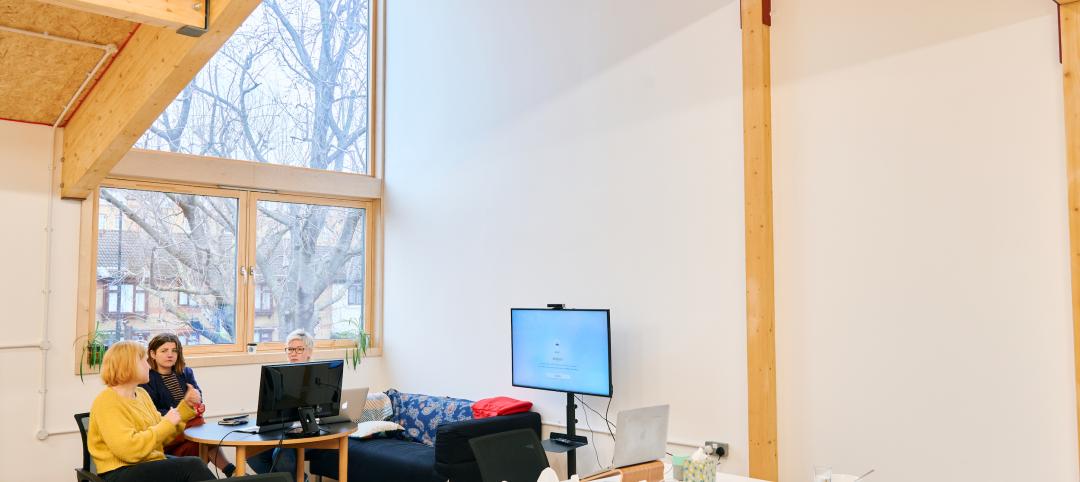The George W. Bush Presidential Center announced today it has earned Platinum certification by the U.S. Green Building Council’s Leadership in Energy and Environmental Design (LEED) program. The Bush Center is the first presidential library to achieve LEED Platinum certification under New Construction (v2009).
“As we approach the Bush Center’s April 25 dedication, we are proud to be recognized for our emphasis on sustainable building design,” said Mark Langdale, President of the George W. Bush Presidential Center. “The Bush Center and our ongoing work are a reflection of the principles that guided President and Mrs. Bush in their public service, including their longstanding commitment to conservation and caring for the land.”
The LEED Green Building Certification System encourages the use of designs, materials and systems that are sustainable, energy efficient and reduce a facility’s impact on the environment and human health. The Bush Center features green roofing systems to reduce heating and cooling demands, solar panels for producing electricity and hot water, building materials sourced from the region to lower transportation impacts, and rainwater recycling that will meet 50 percent of the irrigation needs of the native Texas landscaping.
Regionally sourced building materials used in the Bush Center include Texas Cordova cream limestone from Central Texas, Permian sea coral limestone from near the Bushes’ hometown of Midland, Texas, stained pecan wood interior paneling, and Texas mesquite hardwood floors.
A 15-acre urban park surrounds the Bush Center and allows visitors to experience a distinctive, native Texas landscape in the heart of a major city. The project restored the land’s native habitat by planting more than 70 percent of the site, including more than 900 trees, 40 of which were transplanted from the Bushes’ Prairie Chapel Ranch in Crawford, Texas. The Bush Center’s landscaping includes a prairie and savannah planted with five drought-tolerant grasses, and a wildflower meadow, featuring Texas wildflowers such as bluebonnets.
For more information on the Bush Center’s LEED features, please see the attached fact sheet, or visit the Bush Center online at www.bushcenter.org.
Related Stories
AEC Tech Innovation | Apr 27, 2023
Does your firm use ChatGPT?
Is your firm having success utilizing ChatGPT (or other AI chat tools) on your building projects or as part of your business operations? If so, we want to hear from you.
Concrete Technology | Apr 24, 2023
A housing complex outside Paris is touted as the world’s first fully recycled concrete building
Outside Paris, Holcim, a Swiss-based provider of innovative and sustainable building solutions, and Seqens, a social housing provider in France, are partnering to build Recygénie—a 220-unit housing complex, including 70 social housing units. Holcim is calling the project the world’s first fully recycled concrete building.
Multifamily Housing | Apr 21, 2023
Arlington County, Va., eliminates single-family-only zoning
Arlington County, a Washington, D.C., community that took shape in the 1950s, when single-family homes were the rule in suburbia, recently became one of the first locations on the East Coast to eliminate single-family-only zoning.
Architects | Apr 21, 2023
Architecture billings improve slightly in March
Architecture firms reported a modest increase in March billings. This positive news was tempered by a slight decrease in new design contracts according to a new report released today from The American Institute of Architects (AIA). March was the first time since last September in which billings improved.
Green | Apr 21, 2023
Top 10 green building projects for 2023
The Harvard University Science and Engineering Complex in Boston and the Westwood Hills Nature Center in St. Louis are among the AIA COTE Top Ten Awards honorees for 2023.
Multifamily Housing | Apr 19, 2023
Austin’s historic Rainey Street welcomes a new neighbor: a 48-story mixed-used residential tower
Austin’s historic Rainey Street is welcoming a new neighbor. The Paseo, a 48-story mixed-used residential tower, will bring 557 apartments and two levels of retail to the popular Austin entertainment district, known for houses that have been converted into bungalow bars and restaurants.
Design Innovation Report | Apr 19, 2023
Reinforced concrete walls and fins stiffen and shade the National Bank of Kuwait skyscraper
When the National Bank of Kuwait first conceived its new headquarters more than a decade ago, it wanted to make a statement about passive design with a soaring tower that could withstand the extreme heat of Kuwait City, the country’s desert capital.
Design Innovation Report | Apr 19, 2023
HDR uses artificial intelligence tools to help design a vital health clinic in India
Architects from HDR worked pro bono with iKure, a technology-centric healthcare provider, to build a healthcare clinic in rural India.
Design Innovation Report | Apr 19, 2023
Meet The Hithe: A demountable building for transient startups
The Hithe, near London, is designed to be demountable and reusable. The 2,153-sf building provides 12 units of business incubator workspace for startups.
Metals | Apr 19, 2023
Sherwin-Williams Coil Coatings releases new color forecast for architectural metal coatings
The Coil Coatings division of Sherwin-Williams has released its latest color forecast, FUSE, for architectural metal coatings. The report aims to inspire architects, product manufacturers and original equipment manufacturers (OEMs) in the coil and extrusion market over the next 3-5 years and beyond.


